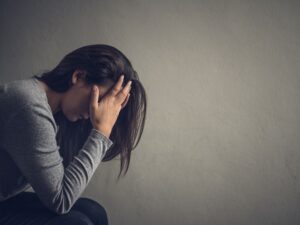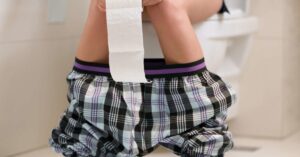Can a 17 year old get piles?
Piles are one of the most common diseases these days but Can 17-year-old get piles? Or can a teenager get piles? This is one of the most common questions that we have seen many people ask, and that’s why we have decided to address it once at all.
Histiocele, often known as piles, are enlarged blood vessels around the rectum and anus. When excessive strain is exerted when passing feces, the blood vessels in this area become dilated and irritated. Pile formation may occur either internally or externally, resulting in bleeding, discomfort, and pain in the anal region.
Hemorrhoids may develop in teens and adults, even though they are more prevalent in adults. In this piece, we’ll go over the signs and symptoms of hemorrhoids in teens and the reasons and treatment options available.
Can a 17 year old get piles?
Yes, even teenagers can get piles because this disease can attack anyone. And these are some of the most common symptoms of piles in teens mentioned below.
- I was itching in the area around the anus.
- While passing the bowels, I had a burning feeling.
- After defecation, blood may be observed on the toilet paper and in the stools.
- Anal pain is caused by swollen blood vessels in the anal region.

- Soreness in the anal area makes it uncomfortable to sit for lengthy periods.
- A sense of blockage around the anus makes it challenging to evacuate feces.
- The discomfort lasts for two to three days, and the enlargement may last for one or two weeks from the first onset.
Types Of Hemorrhoids
Teenage Hemorrhoids manifest themselves in a variety of ways, some of which are as follows:
Hemorrhoids are classified into two categories:
“internal” refers to structures found inside the anal canal and are generally painless. The most noticeable symptom, on the other hand, is bleeding. Prolapsed internal hemorrhoids, characterized by moderate discomfort, fecal incontinence, mucous discharge, and irritation of the skin surrounding the anus, may develop due to this.
External hemorrhoids protrude from the anus, which is the most common. With your fingers, you might try to press them back into the anus depending on the issue you are experiencing. These are uncomfortable to the touch and are delicate to the touch. In this instance, external hemorrhoids may also include a blood clot or thrombosed external hemorrhoids. After defecation, they are irritating and produce swelling and redness around the anus. They also have a blue hue look around the anus.

Causes Of Hemorrhoids In Teenagers
- Constipation that lasts a long time
- Sitting on the toilet for an extended period on a regular basis
- A low intake of fiber in the diet
- Reduced consumption of water
- Certain drugs are included.
- Obesity as a result of a bad diet
- Constipation has been passed down through the family.
- Chronic diarrhea is caused by using a smartphone while on the toilet.
Diagnosis
It would be up to your child’s doctor to question their symptoms as well as their medical history to identify whether or not they have hemorrhoids. Anorectoscopy (a procedure in which a tube-like tool is used to do a rectal examination) may be necessary for some instances.
In particular teenagers, a speculum examination (a duck-billed-shaped device used to inspect a closed hole in the body) may also be performed on them. Hemorrhoids may cause discomfort and mental worry in parents concerned about their children’s conduct.
Treatment For Hemorrhoids In Teenagers
Early detection and treatment of hemorrhoids may reduce the need for surgical intervention. Internal hemorrhoids and prolapsed hemorrhoids may be controlled with food and lifestyle modifications. Before recommending drugs or surgery, the doctor would check your child’s health and may suggest the following home care options.
Home Care Treatments
If constipation is the underlying cause of hemorrhoids, boosting dietary fiber via high-fiber whole grains such as wheat, oats, barley, and rye may aid in the simple passage of stool through the digestive tract and elimination. This approach may help lessen the bleeding, but it may not effectively alleviate the discomfort and itching.
- Foods rich in fat should be avoided or consumed in moderation.
- I am encouraging them to live a more active lifestyle by encouraging them to go outside and play or adhere to an exercise regimen.
- Educating your adolescent on good toilet habits, such as using the toilet before going to bed
- Make it a daily habit to empty your bowels consistently.
- Spending less time on the toilet seat is an improvement.
- We are putting a tight halt to the practice of using cell phones while sitting on the toilet seat.
- Instruct your youngster never to hold back the desire to defecate since doing so may cause the hemorrhoids to flare up.
- Increasing water consumption may aid in alleviating constipation symptoms.
- Wearing soft cotton underwear that is less prone to irritate and worsen existing hemorrhoids can aid in healing hemorrhoids faster in the long run.
- It is possible to change the drugs that are causing diarrhea or constipation.
- When constipation is addressed, it is common for the discomfort and bleeding to diminish within two to three days. Additionally, the hemorrhoids’ swelling may last up to a week. However, if none of those above procedures prove effective and the discomfort and bleeding continue, you may need to see a physician.
Medications
When dietary and lifestyle modifications fail to alleviate constipation, your child’s doctor may prescribe medication to help ease the condition.
- Topical ointments containing zinc oxide or petroleum jelly may help establish a protective layer around hemorrhoids, preventing additional tearing and irritation. They may also help to relieve itching.
- It is necessary to use suppositories to offer lubrication to the anal area.
- Your kid’s doctor may prescribe pain relievers such as acetaminophen, ibuprofen, and naproxen if your child is experiencing significant discomfort.
- Constipation may be treated with laxatives and suppositories, available on prescription.
